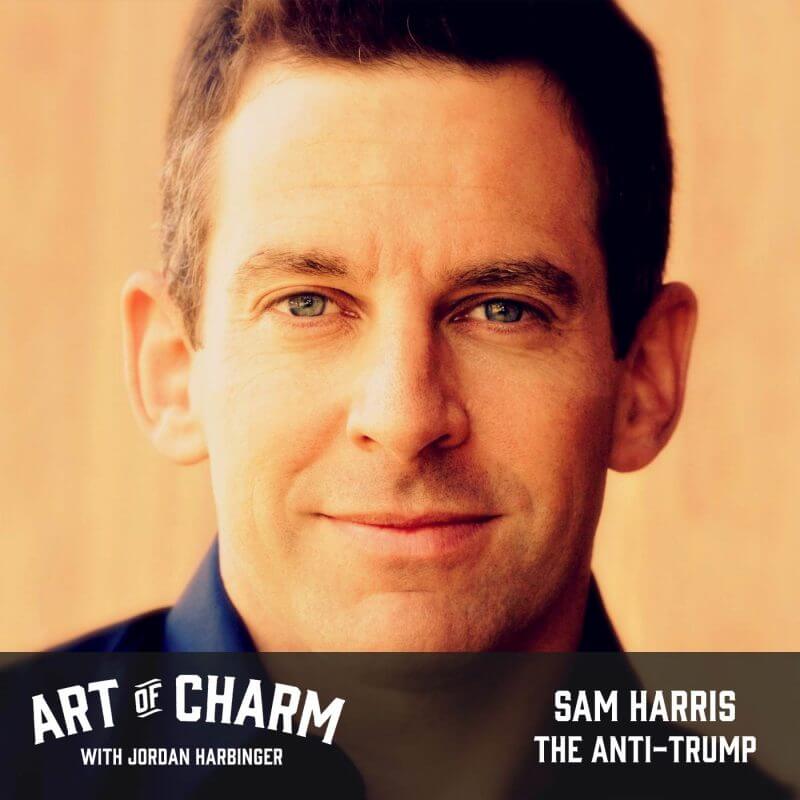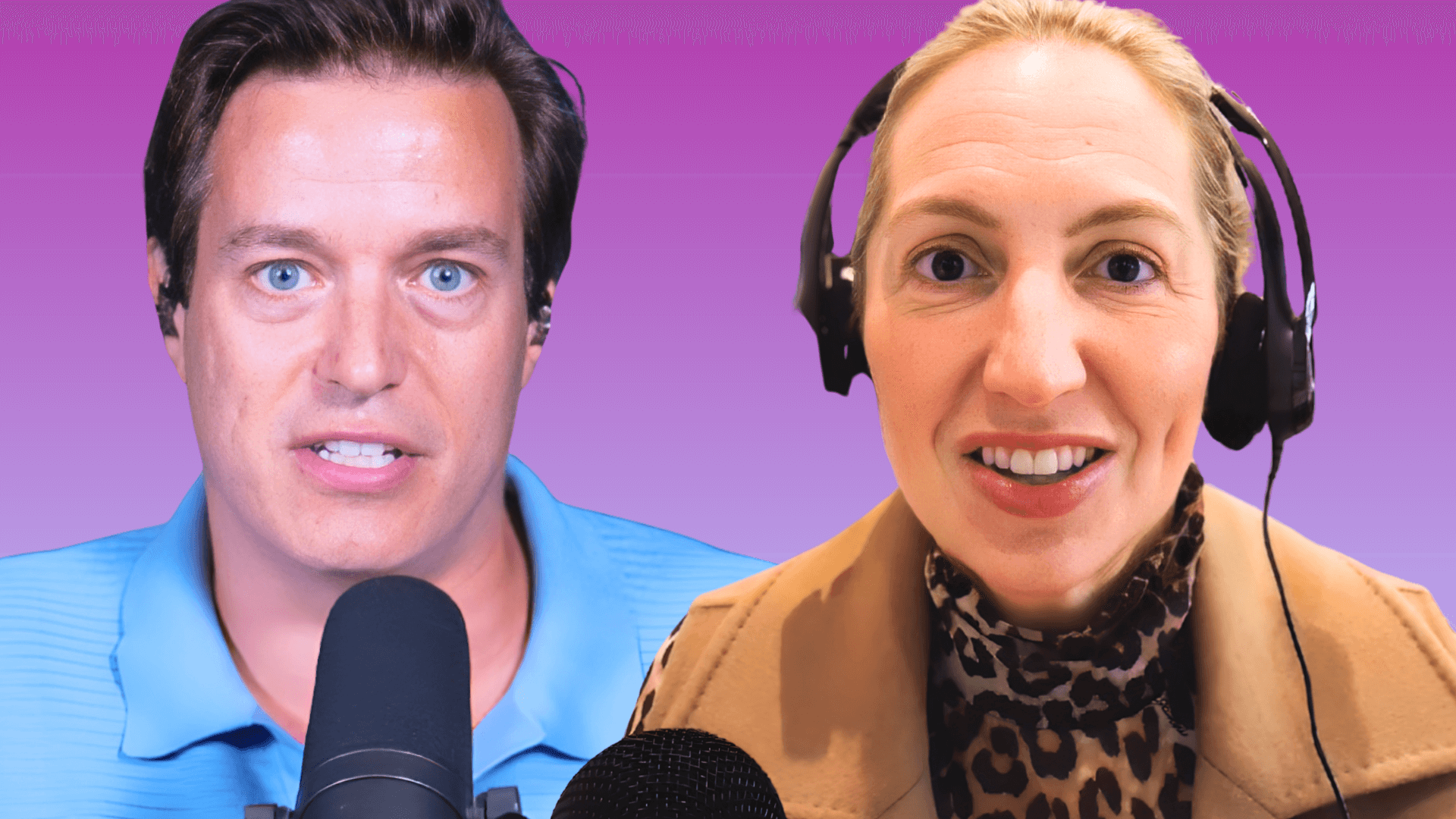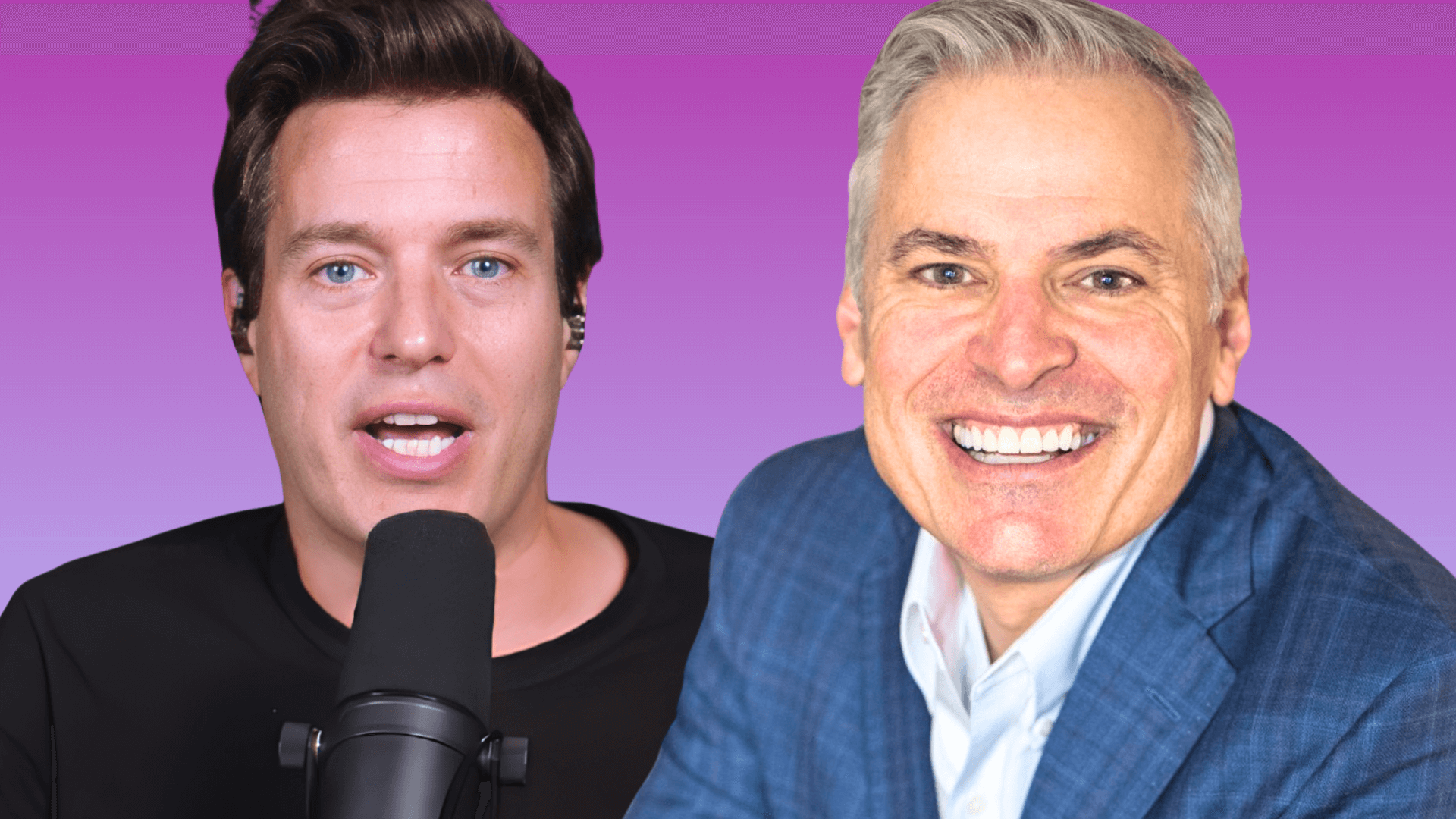Sam Harris (@samharrisorg) is a neuroscientist, author, and philosopher; he’s also a staunch critic of religion (while being an advocate of mindfulness) who joins the show to discuss some views that — fair warning — many may find controversial.
The Cheat Sheet:
- When does stubbornness stop being a virtue and become a confession of intellectual dishonesty?
- What makes Sam Harris the Anti-Trump?
- Why do so many people subscribe to the package beliefs of their political parties or religions even when clearly proven scientific facts prove contradictory to these beliefs?
- If Sam Harris considers himself primarily a philosopher, how did he wind up with a PhD in neuroscience?
- Why do we lie — even when we know how destructive it can be?
- And so much more…
[aoc-subscribe]
Asked what he does, author, philosopher, and neuroscientist Sam Harris says he thinks in public and tries to reason as honestly as possible about what many deem controversial issues — like religion (namely Islam) — even when the audience isn’t likely to be converted to his way of thinking. He’s used to people disagreeing with him, but for the sake of intellectual honesty, he’s always willing to see things from the perspective of his audience and admit when he’s wrong.
He contrasts this approach with Donald Trump, whose carefully curated audience tends to accept whatever he says — even when what he says today contradicts what he said yesterday, or when clear evidence debunks his “facts” as fictions. Does this make Sam Harris the Anti-Trump? Check out episode 514 of The Art of Charm to find out.
Download Episode Worksheet Here
More About This Show
When you’re in a debate with someone about any issue, you don’t want to be slow to notice when you’ve made a mistake or an inconsistency in your argument makes itself apparent. But when you’re Sam Harris, author of books like Islam and the Future of Tolerance: A Dialogue, Lying, and Waking Up: A Guide to Spirituality Without Religion, sometimes you just want people to understand what you’re trying to say without applying their own bias to the overall message.
“The vast majority of the criticisms I get — certainly the most scathing ones — are based on, in many cases, deliberate misrepresentations of what I believe or what I’ve written or what I’ve said publicly,” says Sam. “Or just frank misunderstandings of what my views are. I find that really frustrating, because there’s not a comment thread on Earth at this moment dealing with anything I’ve written or said which isn’t riddled with people confidently deriding me for views that I don’t hold.”
Because there’s no remedy for this phenomenon, Sam has learned over time to just dial down his own frustration with it and carry on — though it’s especially difficult in the current age of social media, memes, Internet trolls, and a political climate that caters more to sensationalism than truth.
“There are people who have assembled their audiences in such a way based on how they operate in public where they’re in an echo chamber,” says Sam. And some of these echo chambers are vast. Trump is in one where he’s trained his audience not really to care about his consistency or his honesty. He’s got a new form of honesty. It’s an honesty of being uncensored. Of saying whatever he can seem to credibly think in the moment, whether or not it contradicts something he thought yesterday.
“He feels absolutely no burden to make his worldview cohere in any kind of comprehensive way, even in the span of a single paragraph. And he gets away with it because his audience doesn’t care. His honesty consists not in what he’s actually saying and whether the information is being communicated in a way that survives any kind of rational scrutiny; it’s much more of an emotional authenticity. It’s much more of…just sticking a stick in the wheel of the system and just watching the gears grind. It is a kind of defacing of our public discourse and the institution of government. It’s what people want to see happen. So people support this without ever feeling the burden of really parsing his statements with anything like an expectation that they’re going to understand what his views are and what he intends to do and what he really thinks.
“But there are many people playing this game and it’s obvious in politics, but it’s happening more and more in journalism where journalism just becomes a political act of expressing highly polarizing and ultimately dishonest — or at least knowingly incomplete — opinions about the world and just scoring more points for your team.”
And it’s the idea of teams — whether we’re talking about belonging to a certain religion or political party or some other package deal that dictates how we’re supposed to feel about certain issues — that makes people lose touch with reality in favor of what they want to believe is true.
“Some vast numbers of Americans in polls that range from 30 percent to 45 percent believe the universe is 6,000 years old,” says Sam. “That is not an opinion that any sane or educated person should be able to hold at this moment — and yet they think they’re actually dealing with facts…it’s a starkly delusional way of operating, yet it’s just more and more common.”
For a lot of people, overcoming these delusions means swimming against the tide of powerful beliefs that may have been instilled during childhood. But Sam Harris believes taking the side of science over dogma invites disruption — and this pursuit of truth is crucial to the progress of humanity. “If you come to me with good evidence and good arguments,” Sam says, “I’m going to be swayed to the degree that you deliver the goods. And I should want to be swayed! I shouldn’t want there to be any friction in the system.”
One hitch we all face, even if our intentions are good and we want to be open to new ideas, is a certain blindness when it comes to knowing ourselves. This is why Sam is open to mindfulness and meditation as a way to be more in tune with who we are, but without the spiritual trappings that tend to get bundled with them. It makes more sense when you remember that Sam Harris is as much a philosopher as he is a scientist.
“My PhD is in neuroscience, but my interest in the brain has always been philosophical,” he says. “I went into neuroscience very much as a philosopher. I was thinking like a philosopher, I was reading philosophy, I had thought I was going to do a PhD in philosophy, and then at the last minute decided to switch to neuroscience. And I did that because I wanted to know more about the brain. My interest in philosophy has been focused on the nature of the mind and questions about what consciousness is and all the questions of higher cognition and human subjectivity that are most talked about in philosophy, but are more and more tied down to the facts as we understand them in a neuroscience lab.
“If you want to understand the mind and you want to understand people in general, ultimately you have to understand the brain and we’re really at the beginning of that effort and I wanted to be as conversant as I could be with all of that.”
Listen to this episode of The Art of Charm in its entirety to learn more about why credentials don’t ultimately matter if you’re adept at playing the language game, why Sam Harris is cautious about having his work translated into Arabic, what security measures a controversial author has to take when their life has been threatened by people who have proven themselves dangerous, why we lie (even when we understand how destructive it can be), and lots more.
THANKS, SAM HARRIS!
Resources from This Episode:
You’ll Also Like:
- The Art of Charm Bootcamps
- Best of The Art of Charm Podcast
- The Art of Charm Toolbox
- The Art of Charm Toolbox for Women
On your phone? Click here to write us a well-deserved iTunes review and help us outrank the riffraff!




